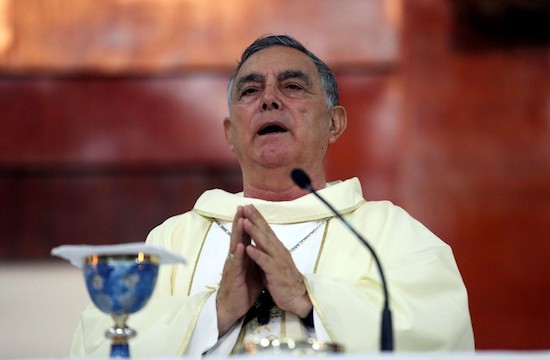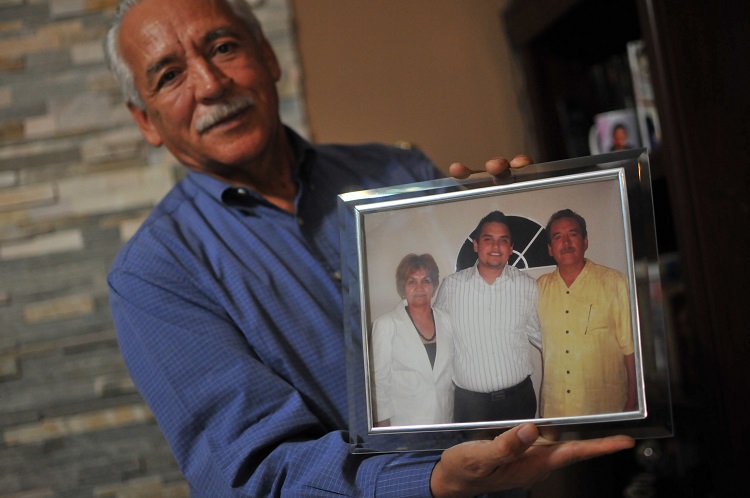
A bishop in the Mexican state of Guerrero, notorious for its narcotics production and drug traffickers, has developed his own way of dealing with cartels – by negotiating, La Croix reports.
Local communities frequently suffer because of the conflicts between rival gangs. In 2017, there were seven murders per day in the state.
Bishop Salvador Rangel Mendoza, of the Diocese of Chilpancingo-Chilapa, has negotiated for the life of a kidnapped priest, for cut-off gas and electricity supplies to be restored, and for public transport to resume after drivers were killed.
“I know that it’s dangerous, but I do it because I can prevent abductions and killings. I come as a friend. I don’t criticise and I don’t judge,” the bishop said to La Croix. He also added that he had never been threatened by any gang.
The bishop’s approach hasn’t been welcomed by everyone; he has been criticised even by the government, which called him “irresponsible”. However, the government’s strategy to eradicate drug trafficking has failed and resulted in the formation of larger cartels and more than 200,000 deaths in the past 12 years, according to La Croix.
Bishop Mendoza has his supporters, too, including the Episcopal Conference of Mexico. He says he is working for “a more lasting peace” between the different cartels and that some of their bosses have confided in him that they want to live in peace as well.
“When we perform our pastoral work, we are left with no choice but to move among them [the cartels],” the bishop told the UK’s Guardian newspaper in February. “If Guerrero is in the hands of narcotics traffickers and all those people work for them, when you do apostolic work, it is among them.”
Mexico is considered the most dangerous country to be a Catholic priest.

In March 2017, World Watch Monitor reported that cartels charging church leaders “taxes” is now “very common”. Dagoberto Sosa Arriaga, bishop of Tlapa in Guerrero, was recently forced to pay criminals to ensure the undisturbed use of his cathedral, as Milenio reported. Another Guerrero bishop, Maximino Martínez Miranda from Ciudad Altamirano, was stopped by an armed group that commandeered his vehicle.
And the violence isn’t restricted to Guerrero. Just last week, World Watch Monitor reported the story of Pastor Eduardo ‘Lalo’ Garcia from Juarez, Chihuahua, which borders the US state of Texas. He was murdered last month, nine years after his son was killed, and seven years after his daughter was kidnapped – all at the hands of the cartels.
Background
About 90 per cent of Mexico’s population identifies as Christian, and while the violence affects everyone, “actively practising Christians” are particularly vulnerable, according to Dennis Petri, Latin American analyst at Open Doors, a charity that supports Christians under pressure for their faith around the world.
“It’s important not to look so much at their identity as Christians, but more at their behaviour that results from their Christian convictions,” Petri told World Watch Monitor last year. “Whenever a Christian starts to engage in social work – for example setting up a drug rehabilitation clinic or organising youth work, that is a direct threat to the activities and interests of organised crime because it takes the youth away from them, so it is a direct threat to their market.”
A more obvious example of why active Christians are easy targets comes from the perception that churches and their leaders have a lot of money, Petri said, so congregations offer a ready source of cash – a group of thieves can simply enter, lock the doors and ask the congregation to empty their pockets.